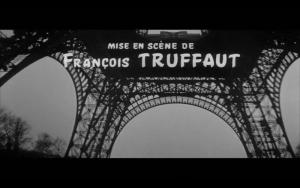
Source: Flickr user Meagan Fisher
License
As a kid, Disney’s Pinocchio (1940) scared the hell out of me. Not the whole thing, mind you. But, shaking like a leaf, I couldn’t look away when Pinocchio, Lampwick, and the gang drank, smoked, and fought themselves silly on Pleasure Island. “Pleasure,” I thought. “Pleasure feels good, right? Why is Pinocchio turning into a donkey?” Of course, he had become a literal jackass. I wasn’t sure what beer was. My parents smoked, so I had that down. But, if I drank and also smoked, would I start beating my friends? Would my feet become hooves and my voice contort into a hideous screech? Is that what “fun” meant?
François Truffaut’s The 400 Blows (1959) is 99 minutes of non-stop Pleasure Island with all the good and ill that entails. Adolescent Antoine Doinel (Jean-Pierre Léaud) leads a troubled life filled with resentful parents, a miserable schoolteacher, and classmates who seem equipped to do little more than squeal and tease.
He doesn’t care much for school himself and consistently runs away from home, always punished too harshly for a lie he felt forced to tell. His vain mother descends squarely from the “children = seen, not heard” school of thought. His father, a somewhat genial racing enthusiast, is fed up with the boy’s hijinks without ever trying to understand why the boy gets up to trouble.
Taken away into Antoine’s world, we remember the enchantment of childhood, a blessing that emerges even from his fractious and sad situation. He and his friend scheme to do things any adult would deem absurd but that seem entirely reasonable to them. “Let’s live in a room together in the back of my house!” “Why not sleep in a printing workshop and show up to school the next day. Why would your parents know to find you at school?” “What harm could come of stealing a typewriter?” I was utterly convinced they were right, even if, deep down, I know that the plans of mice and men gang aft agley.
As in all great children’s media, the adults in this world seem alien, even cruel. They make no attempt to understand poor Antoine, and, more often than not, they’d sooner see him punished than heard. But we see that their lives are difficult too. His family is poor and overworked. He and his classmates harry his teacher at every opportunity.
Antoine himself steals and lies. He even takes money from his grandmother, the only person (he seems to suspect) who really loves him. Antoine is not perfect. He is mistreated, a product of his circumstances, yes. But these exacerbate a tendency to mischief; they do not produce it.
My wife is an elementary school teacher. I’ve spent quite a bit of time in classrooms myself. Broadly speaking, one encounters two theories of education and classroom management: 1. the kids need to be understood, negotiated with, and rarely punished; 2. the kids must be controlled, punished, and made to understand who has authority in the classroom. Almost no one exists at either extreme. Instead, teachers inhabit some nebulous position between the two poles. Truffaut’s film exhibits why no easy binary can capture all that it means to be a child, to have a child’s problems and desires. Most astoundingly, he shows us this from a child’s perspective.













